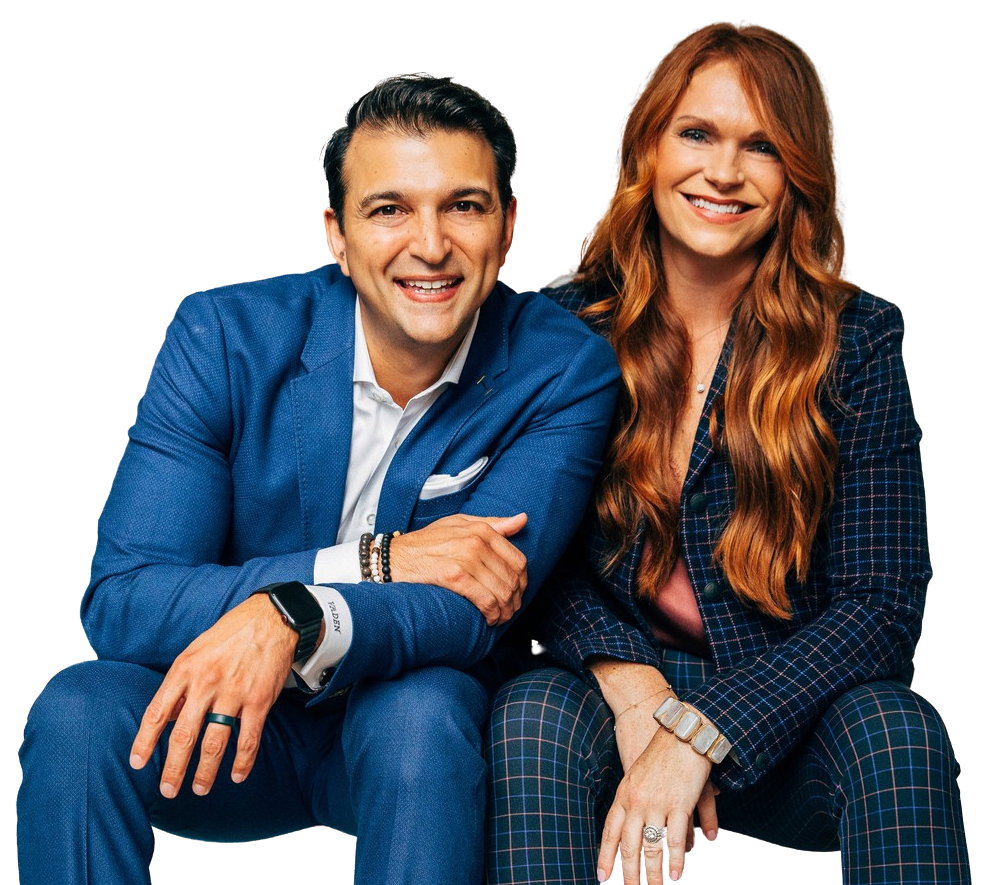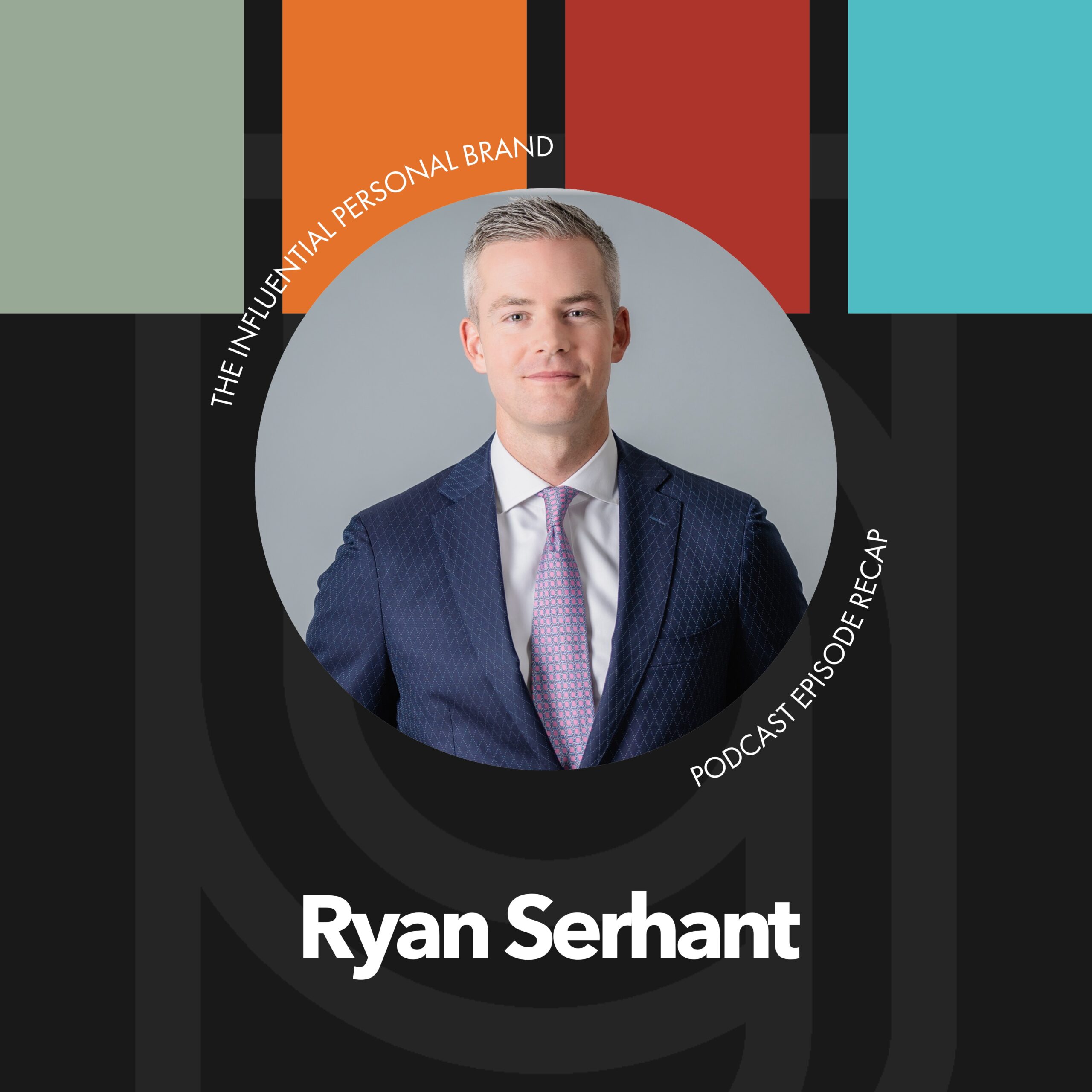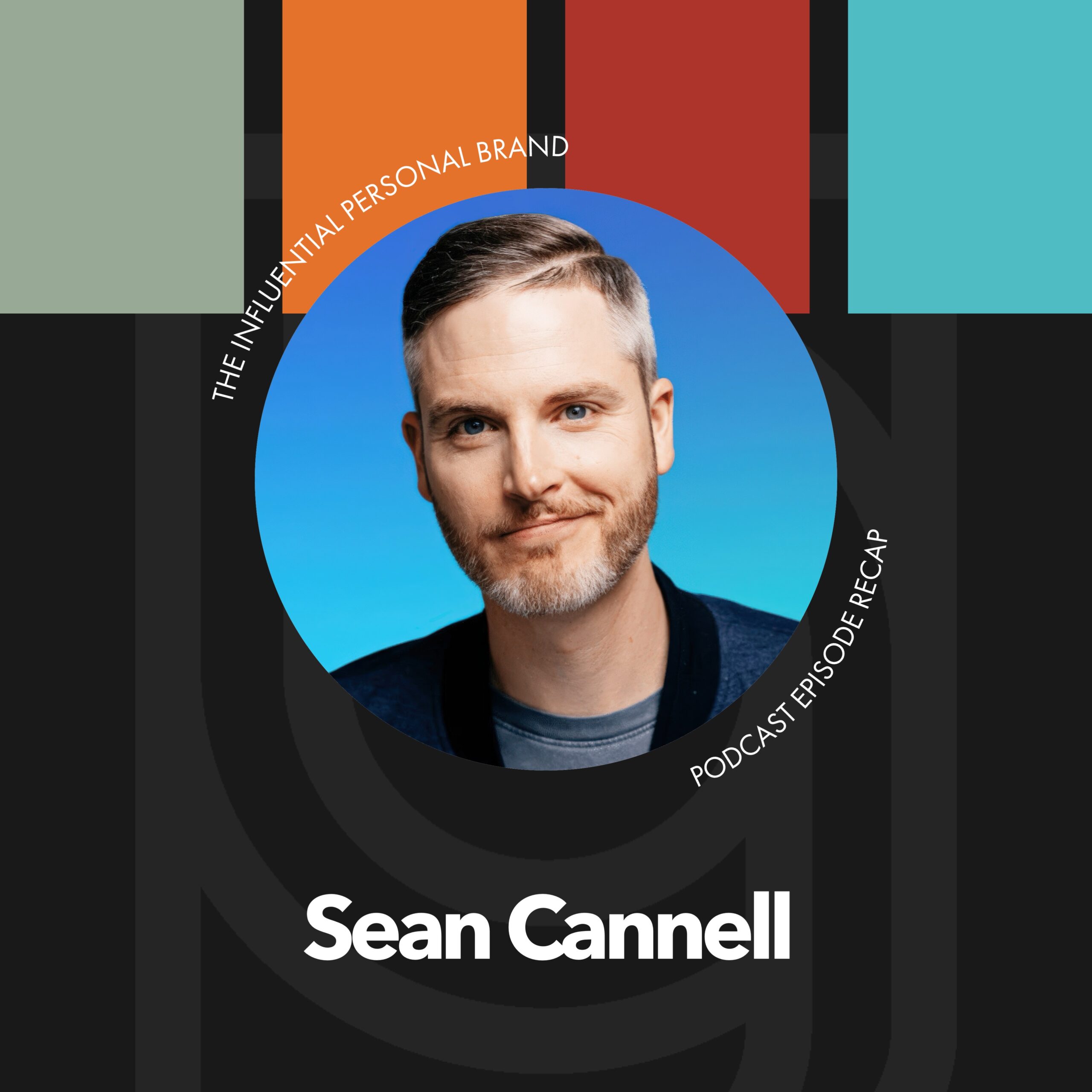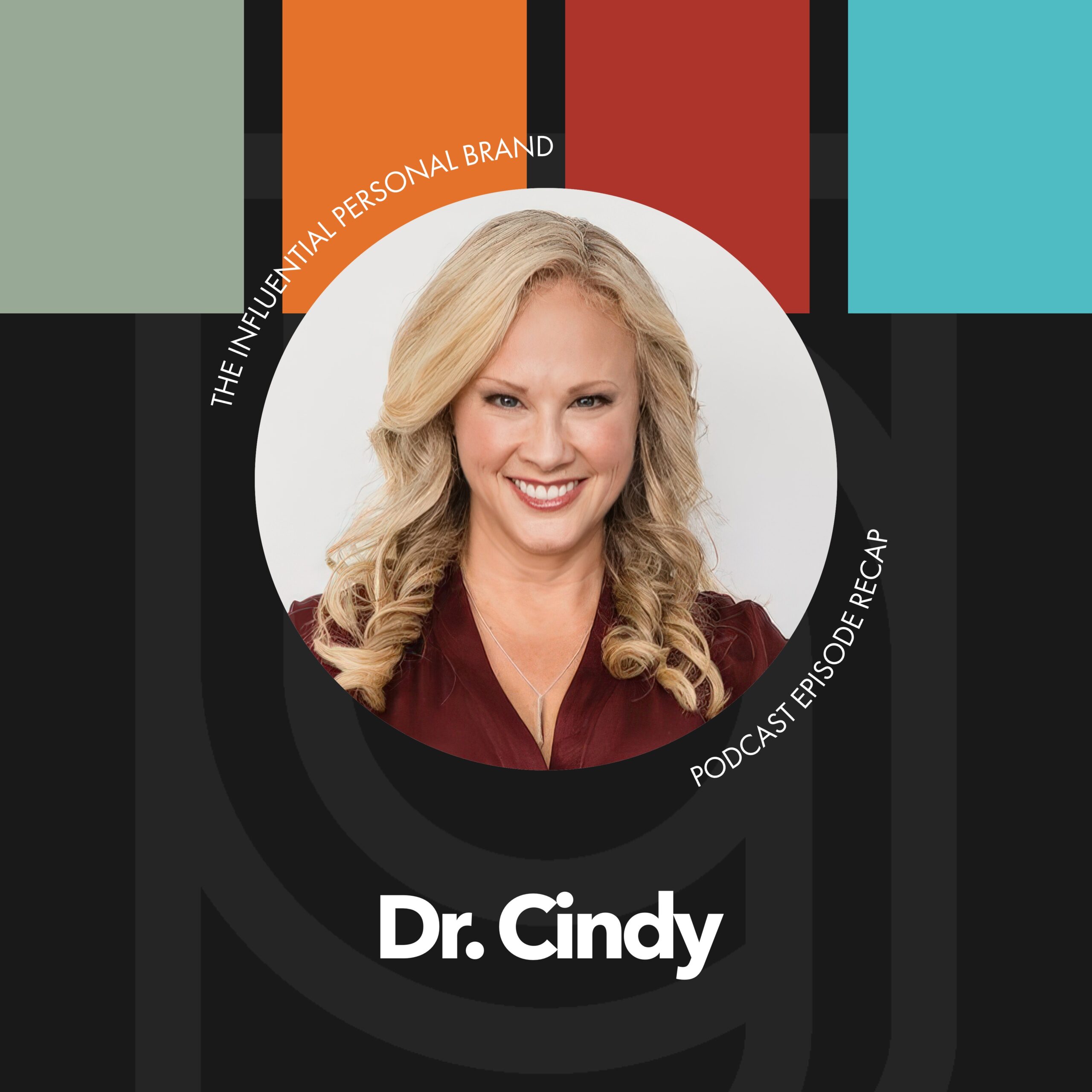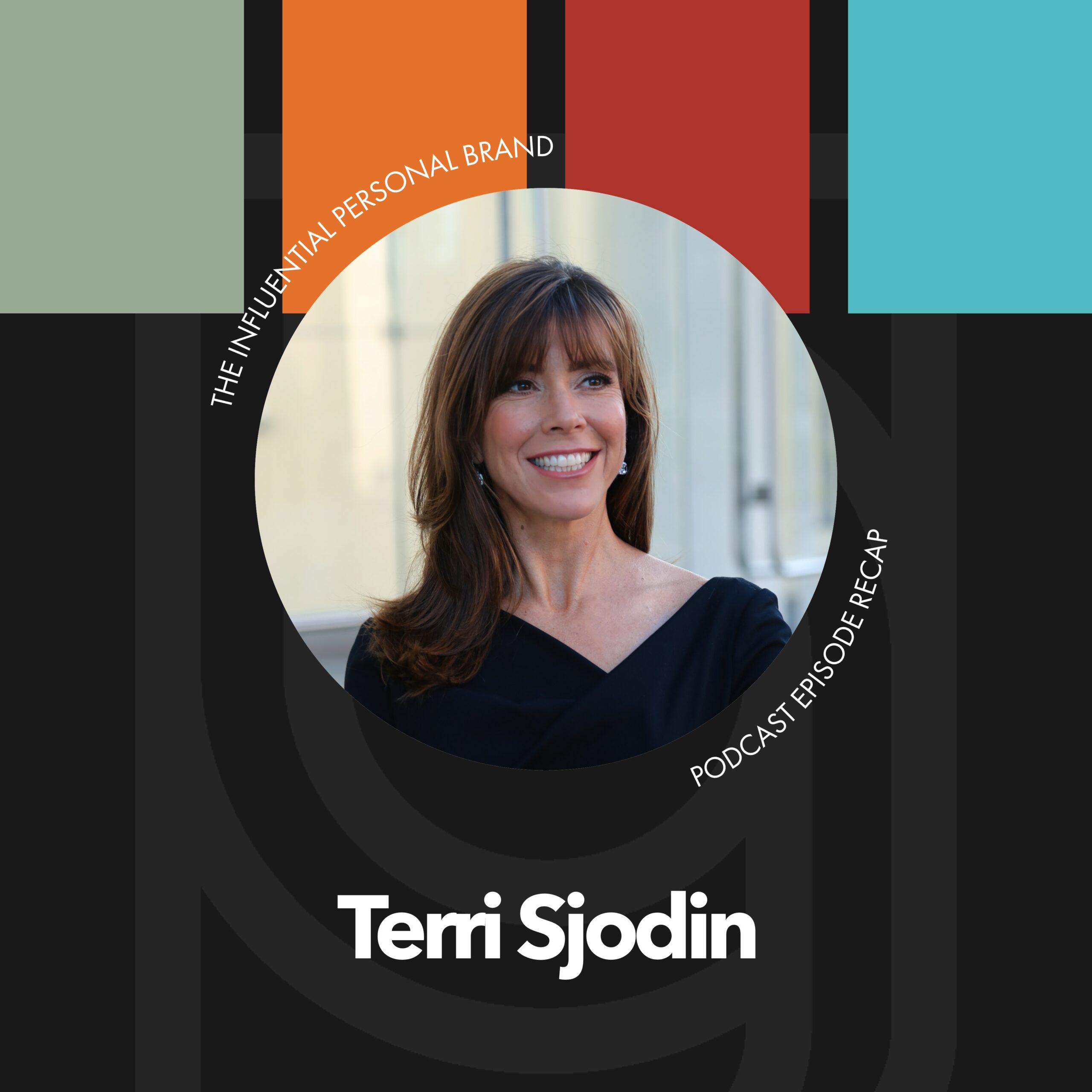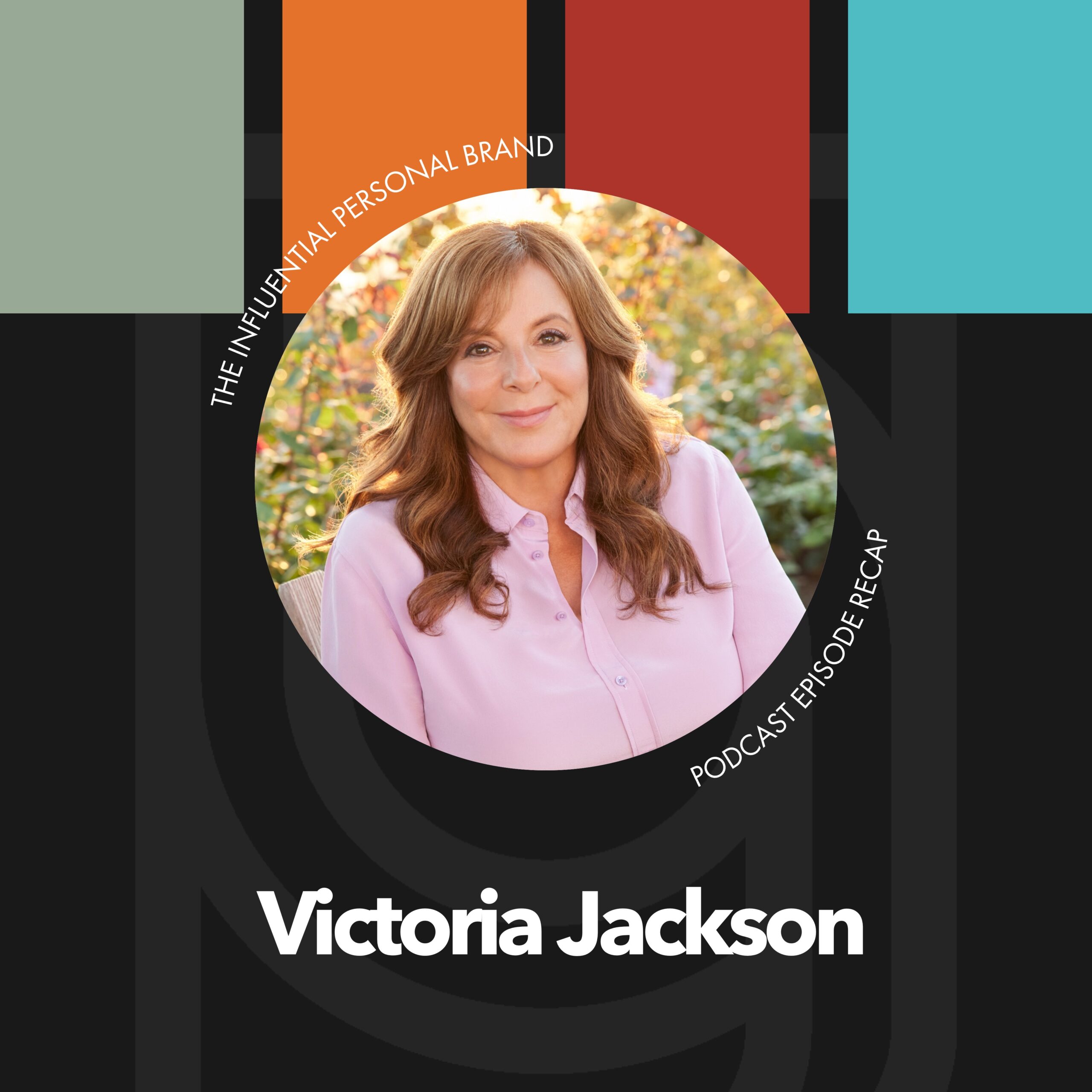RV (00:02):
I love talking about funnels, , that’s such a nerdy thing to say. I never would’ve thought, like years ago I would hear myself say it, but I love it. I love marketing automation, and it’s probably because I hated selling door to door so much , the idea of just calling on people and interrupting them and like bugging people. And so now there’s this whole world that exists of marketing automation where people who are interested can find you and they can come to you and they can self-serve their way through your content to let you know that they’re interested. And I just, I love that. I love sales too. I do love sales. I didn’t, I didn’t love going door to door because it was, it was extremely difficult. But I do love sales and I love selling, but I really love marketing automation and funnels.
RV (00:59):
And of course, you know, that was the topic of the conversation here recently with my friend Lauren. And so I wanted to share with you some of my own thoughts related to funnels and constructing funnels. And I, I thought I would start with a definition of like, what is a funnel really, because there’s a lot of, that means a lot of different things to a lot of people. But in the world of marketing automation and in brand builders groups speak, right? For our company, what is a funnel? Like to me, a funnel is just a series of automated emails with links in them that you can click on that take you to landing pages where you can watch videos which allow you to learn about something to where you might then click on something, click on another link, and then buy something, right? It’s just an automated system of nurturing somebody to making a decision, a financial decision to do business with you.
RV (02:01):
But, you know, there’s a lot of over complication that happens around funnels. I mean, at the end of the day, these are emails that you’re sending that have links in them, right? So you, what are the components of a funnel? They, they’re emails with links. When you click on those links, it takes you to pages. Those pages have videos on them. So you’ve got emails, links, pages, and videos, and ultimately that’s it, right? And then you click another link, it takes you to another page where you put in a credit card information. So the, the, the strategy matters way more than the technology. And that’s a brand builders group mantra that we talk about is, is just the strategy of, of going, how are we laying this out and, and what are we doing? And, you know, before we even get into the strategy, what I wanted to share with you, e even before that would be, is my philosophy. It’s our philosophy. It’s this part of our culture at Brand Builders Group. But our philosophy about not just funnels,
RV (02:58):
But selling online in general and, and, and selling in general, but specifically in the world of content marketing and marketing automation. And it’s, it’s something that we call the rule of 10. And it’s based on another mantra that we believe, which is this trust must take place before there’s a transaction. Trust must take place before there’s a transaction. If you want someone to buy from you, you can’t just think about what are the tactics and the tricks and the technology that I need to use to like get someone to buy. And what you really need to be thinking about, which is the bigger conversation, which like almost nobody is talking about, which is the entire sale, is that before there’s a transaction, there has to be trust. You have to build trust, they have to trust you. They have to like you, they have to believe in you.
RV (03:51):
They have to believe that you can help them. And I think maybe they don’t need to believe this, but I would want them to believe this and I would want you to want them to believe this, which is that you should want them to believe that you actually care about them. That you actually give a crap about them succeeding. That it’s not just about you reaching your hand to their pocket and pulling out their credit card and taking money from their account and transferring it to yours, but that you, you’re concerned about a transformation taking place in their life. And so you’re focused not on just creating transactions, you’re focused on creating trust. You’re not just focused on creating customers, you’re focused on creating fans. You’re not just focused on like creating conversions. You’re, you’re focused on creating transformations for people. And so we, I, I think of this, or we call this, we refer to this as the rule of 10 because you can, even if you get all the technology right, and you do the sequencing, right, and you write the emails properly, which is a big if, right?
RV (04:58):
There’s a lot of bad copywriting out there. And even people who will charge you for copywriting that really don’t know what they’re doing, and, and, and they will, can charge you a lot like and there’s a lot of people who will charge you a lot of money to build funnels and they really don’t know what they’re doing. So there, there’s a lot of, there’s a l a lot of potholes here on this journey, but like before all of that, I want you to aspire, or at least consider this to aspire for the rule of 10. The rule of 10 says that I am gonna provide to you 10 times the amount of value in advance of me charging you for something. Which means if I’m gonna sell you something that costs a hundred dollars, I’m going to try to provide a thousand dollars worth of value to you before I ask you for the a hundred dollars.
RV (06:01):
If I’m gonna try to charge you $10,000 for something, I am going to try to give you a hundred thousand dollars worth of value. And if I’m gonna charge you a hundred thousand dollars worth of value, or, or excuse me, if I’m gonna charge you a hundred thousand dollars price, right? If that’s the cost, then I’m going to aspire to make the value of what I’m providing to you worth $1 million. And I think too many people are in this space just trying to go, how much money can I get for the least amount of value? And, and you don’t have to do this. I’m not saying that doesn’t work in the short term like that. You can’t create money that way. I mean, you can, but it totally runs out, right? Like eventually, it, it’s not how you build your reputation. The way you build an incredible reputation is you charge for 10, but you deliver a hundred and, or you deliver a hundred before you even charge for 10, right?
RV (07:00):
Or you, you know, deliver 50 and then ask, and then, and then ask for 10 while you’re delivering another 50. But, but it’s the rule of 10 that people are always getting 10 times the value of what they’re paying for. And it’s just, it’s, I don’t know, it’s just a, it’s a philosophy that we have and, and it’s not the only way to make money. I know plenty of people who make lots of money from what I would consider taking advantage of people. I think it’s the opposite. They, they deliver to people a 10th of the value of what they charge for. They, they charge, they charge a hundred thousand dollars and they give them like a thousand dollars product. Like, or they charge $10,000 and they give somebody something that is like really worth a thousand dollars. I see that a lot. But that’s been our pH our philosophy is not that, our philosophy is the rule of 10 the other way.
RV (07:47):
And, you know, it’s worked out well for us. And that’s all I all I can share. And like, you know, that’s why we, we, we only teach what we do. We only teach what we actually practice. But I think part of the power of this, you know, honestly, there’s value to your consumer. There’s value to your, to your avatar, to your customer, to your prospect. And that’s a good reason to do it. But part you may not realize, which is equally as valuable, is it’s valuable to you. Because what I have found, if you’re a true mission-driven messenger, right? If you’ve found your way to this podcast, this episode, you’re still listening. You’re like following me and AJ and our team at Brand Builders Group and the stuff we do, and you’re, you’re starting to like be introduced to the philosophies that, that we have.
RV (08:29):
You’re probably a mission-driven messenger, which means there’s a part of you that goes, I do wanna make money, but I don’t wanna just make money. I’m not okay making money at the expense of somebody else. I’m not okay taking advantage of people. I’m not okay using tactics that are a win for me, but they’re a loss for someone else. If that’s you, you’re a mission-driven messenger. And here’s what we know about you, because this is us. We sometimes struggle to sell. We sometimes struggle to promote. We sometimes struggle to have the conviction to say, you should pull out your credit card and buy this because we’re so nervous about taking ad you know take not wanting to take advantage of people or overpromising and underdelivering or just, you know, not being vain. We don’t wanna be arrogant, we don’t wanna be conceited. And so, but what happens is you need to be an avid promoter in order to create revenue.
RV (09:21):
And so the way you do that is you create the rule of 10. And so you go, what gives you the confidence and the conviction to do it is because you know that it’s worth it, right? And you know, there are people who pay me a hundred thousand dollars for like a couple days of time. And I know for some of you that might be like insane cuz it is for me, honestly, right? Like growing up in a trailer park, to say that out loud is like a weird thing to go man from where I was to, to where where I I I am now or we are now is wild. But it’s because what they’re gonna learn and what we’re gonna build with them is not only worth a million dollars, but probably millions of dollars, right? Because we’re helping them construct a company or create strategy or develop a sales team or a sales plan, or launch a book or write a keynote or, or, or create a whole ecosystem for their, their their personal brand.
RV (10:18):
Those are worth millions of dollars. Millions of dollars, right? And I’m completely convicted in it. And so it’s important that you are convicted in, in what you’re selling. Now most of our clients at Bra Builder’s Group don’t pay anywhere near that amount of money to us. Like nowhere even near that. But we’re always priv providing the rule of 10. So people know that like, hey, our goal is to offer 10 times the value of what you’re paying for. And it gives you conviction to sell when you operate that way. It’s also really great for your customers, right? It’s great for your reputation, it’s great for altruism and service and impact, but it’s also great for your own conviction. And that’s part of the part of what I, I wanted the point I wanted to make. And it, it helps you increase your conversions because you have more confidence.
RV (11:03):
The second thing about funnels that I really wanted to, to share and underscore for you is have realistic expectations. Have realistic expectations. And I thought I really, you know, I I sort of threw this question at Lauren in the interview, which is a tough question to answer. You know, to put someone on the spot to go, Hey, hey, if I, you know, if I did hire you and you did all this, like, what’s the conversion here? And you know, the the, and the number I used, I said, if you have a 10,000 person email list, how many are gonna convert? And you know, I really appreciated the way she did it cuz I, I feel like she did a, a good job, like an honest, an an honest job. But you gotta like understand when, you know, there’s this like dream of like, oh, I’m gonna, I’m gonna sell thousands of courses, or I’m gonna, you know, have a membership with thousands of people.
RV (11:51):
Or, you know, I might have a mastermind with dozens of people painting these top dollars. Those are good dreams. They’re, they’re great business models. We do a lot of ’em, we’ve done a lot of ’em, our clients do ’em, we know them really well. They’re, they’re great things. But what you gotta really understand here is the minuscule total conversion percentage, right? If I have 10,000 people on an email list, if I send that email, first of all, only 20% of the people are gonna open it. So that’s 2000 people, right? If I’m lucky, I would get 5% of those people to click on the email. So that’s 2000. So 10% of 2000 would be 200 people. So, so if I got 5% of those people to click on it, that’s what, what did I say? 2000? Open it. So, so then 10% would be 200.
RV (12:43):
So a hundred people click on it, which means I got a hundred people coming to a registration. Page five. If I have a a 50% conversion on the registration page, that means I have 50 people who opted in for my training. If I have 50 people who opted in for my training, if 50% of them showed up, that’s 25 people who have showed up. And of the 25 people who have showed up, if I I, or shown up, I’m not sure what the proper English is there shown up if, if 25 people have shown up for that training, even if I convert 20% of that audience, so let’s call it 25 people. So 10% would be two and a half, so 20% would be five people. So even if I con convert, quote unquote 20% conversion of that audience, that means I sold five people, but I sold five people out of 10,000, 10,000.
RV (13:38):
Like, like, notice how 10,000 so quickly becomes five. So I just want you to understand like, the reason we’re so passionate about sales in addition to marketing is because we know that if you have conversations with people, you’re probably gonna close like 20 to 30% of people that you talk to when you talk to ’em one-on-one. And there’s like an infinite, you can sell a price point of anything. Like you could sell a hundred thousand dollars, 10,000, 5,000, you know, 2000, like whatever it is because you’re having a, a conversation. So we love to create real life human conversations to people because they accelerate trust. Well, so we’d love, we love digital marketing also, right? We love social media, we love podcasting. I mean, here I am, like pouring our, pouring our heart and soul and a bunch of money into creating all this free content for you, right?
RV (14:25):
So we believe in those things, but you just gotta realize the reality of the minuscule conversion percentage of how fast those audiences dwindle. And it can take a long time to build a 10,000 person email list. I mean, like a legitimate one if they’re real people. So there’s ways to increase that. We talk about, you know, a lot about that stuff, but the real way to increase it is with trust, with adding value, right? Trust must take place before the transaction and then have realistic expectations. And so don’t be hard on yourself. If you launched something right and you had one person buy, or two people buy, or five people like, you might be getting better conversion percentages than the, the biggest personal brands and the biggest online influencers and the biggest information marketers and digital marketers and social media marketers in the world, like percentage wise.
RV (15:14):
So it just, it takes a high volume to convert. And so that’s why so much of what we do is like use the tools to automate trust, right? That’s we, we have a, a, a course called revenue engine or a topic, right? Like in our, in our coaching curriculum that we walk people through, which is building your revenue engine. And the idea is to use these tools of the day to automate trust. And then typically if you’re a small business owner, we say, Hey, request a free call because on a free call, you can then sell ’em something that costs a lot more money and you’ll convert a lot more of those people. Now, long term, that’s not scalable either, because you can only do so many free calls, but you can hire more people and you can do more. So anyways, it’s just have realistic expectations.
RV (15:57):
Is is all I want you to understand, right? So like a lot of people feel like they’re failing and and they’re really not. And again, you know, we teach this stuff and I shared on the interview like some of our highest performing funnels, a five to 8% funnel conversion, meaning if a hundred people signed up for it, like, you know, got to the page and signed up. So that means like maybe 200 people got to the page, right? We would get like eight calls out of that, but then we would, we would probably, we would our team, you know, we typically sell like 30% and that’s because by the time someone’s on the phone with one of our strategists, they already trust us. We’ve already added the rule of 10. They already have so much value. So that’s what you want to create is reputation and trust and add value.
RV (16:40):
And, and by the way, I know that these funnels are a headache for you. And we’re, we’re building, we’re building templates. We’ve been working for years. I’m talking about like multiple years creating something that we’re about to launch that’s called Instant Automation Toolkit, where we’re just gonna give you our funnels and you can just buy ’em. And we, you can have hours, like you can buy them and make them yours. You can rent them for also like very, very cheap. And like you can start using them to build your entire business gi and we’ll give you our exact templates, not like what we do, but like the exact ones and then you just swap out and change ’em. So we’re working on that and that’s, that’s coming. And the last thing I wanna leave you with here on just understanding funnels and online marketing and digital marketing in general, and information marketing, all things we love, all things we do, all things we believe in.
RV (17:32):
But another philosophy we have that’s really important. And, and again, I just wanna encourage you to try this on and consider it for yourself, but this is what we try to aspire to is, and, and we encourage our, our members, our mission-driven messengers, our members inside of our brand builders group community is to realize, and that to realize that the sale isn’t finished when the cash is collected, the sale is finished. When you deliver the result, the sale isn’t finished. When the cash is collected, the sale is finished. When you deliver the result, when you, when you and your team or your product or your service help the customer get the transformation that they wanted originally, like the job isn’t done until then. And anything less than that is just a self-centered way of operating. And so service centeredness, which is what we believe in service centered selling, is about following it through to completion, being driven and focused and, and, and being committed to helping your prospects and your clients and your customers experience a final result.
RV (18:47):
And if you do that, if you have that philosophy, if you have that mindset, if you have that mentality, all I can say is that it works out. Like eventually you will get paid. Eventually your reputation, your reputation grows, eventually people buys. Maybe it’s not the fastest way to put in a dollar in your pocket, but I’m telling you, it’s the fastest way to get rich. It’s the fastest way to build a reputation. It’s the fastest way to get famous. It’s the fastest way to become influential. It’s the fastest way to build relationships with, with people who are doing big things in the world because people trust you and there’s just no dollar you can place on compromising trust, right? There’s just no dollar value you can place on compromising your reputation. So pursue the rule of 10. Remember that trust must take place before the transaction.
RV (19:36):
Be committed to over-delivering and, and remind yourself and build a culture and a community and a, and a team. Or just carry it as a personal philosophy that you’re, that the sale isn’t finished when the cash is collected, the sale is finished when you deliver the result. I hope you’re getting results from listening to this show. I would love it if you would share this episode with someone who you think needs to hear it. Keep coming back. We’re so glad to have you. And it’s our privilege and honor to, to, to be pour into you as much as we can and in hopes that one day you will trust us enough to invest your dollars with us and trust and believe in yourself enough to invest in your dream. And let us coach you up to the next level. But in the meantime, keep coming back, sharing this with your friends, your families, your colleagues, people are important to you. We love you. We’ll catch you next time on the Influential Personal Brand Podcast.



